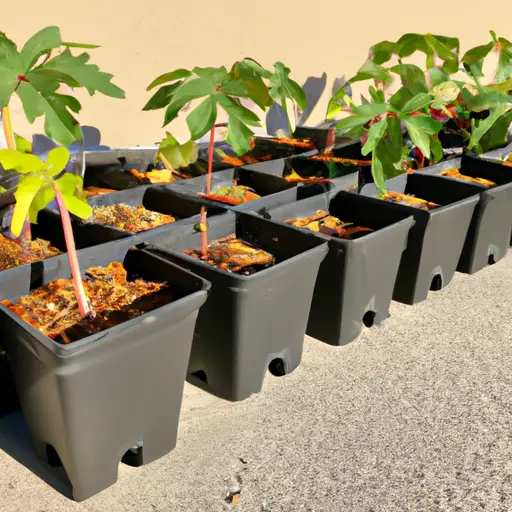Eco-Friendly Garden Solutions with Sustainable Container Planting
Category: Container Gardening Basics, Container Gardening Ideas, Container Gardening Plants
In recent years, there has been a growing global concern for the environment and a shift towards more sustainable practices. As people become more conscious of their carbon footprint, even small changes in daily routines can make a significant impact. One area where we can make a difference is in our gardens.
Container gardening has gained immense popularity as an innovative and versatile solution for urban dwellers and those with limited space. It allows us to bring greenery into our lives while also providing endless possibilities for creativity. However, it’s essential to approach container gardening in an eco-friendly manner to ensure that we are not inadvertently harming the environment or depleting natural resources.
One of the first steps towards sustainable container planting is choosing the right containers. Instead of opting for plastic pots that contribute to landfill waste and take generations to decompose, consider investing in more sustainable options. Terracotta pots made from clay or ceramic containers are excellent alternatives as they are biodegradable and add a touch of elegance to any garden space. Additionally, you can repurpose old containers such as buckets or wooden crates to give them new life.
When it comes to selecting soil for your plants, opt for organic potting mixes or create your own compost-rich mixture using kitchen scraps and yard waste. Organic potting mixes reduce the use of harmful chemicals and synthetic fertilizers in your gardens while providing optimal nutrition for your plants. By recycling kitchen waste through composting instead of sending it to landfills, you can reduce greenhouse gas emissions effectively.
Water conservation is another critical aspect of sustainable container gardening. Implementing water-saving techniques not only conserves this precious resource but also reduces utility bills and maintenance effort. Consider incorporating self-watering systems into your containers – these reservoirs allow plants to uptake water as needed, reducing wasteful runoff. Additionally, using mulch on the top layer of soil helps retain moisture and protects plants from extreme temperature variations.
Selecting the right plants for your container garden is crucial in promoting sustainability. Choose native or drought-tolerant plant species that are well-suited to your climate. These plants naturally thrive in local conditions, reducing the need for excessive watering or harsh pesticides. Native plants also support local ecosystems by providing habitat and food sources for beneficial insects and birds.
To further enhance the eco-friendliness of your container garden, consider companion planting. This technique involves planting different species together that benefit each other in some way, such as deterring pests or improving soil fertility. For example, pairing marigolds with tomatoes can help repel harmful insects without resorting to chemical pesticides.
Lastly, sustainable container gardening requires regular maintenance and care. Implement an integrated pest management system to control pests naturally. Encourage beneficial insects like ladybugs and lacewings into your garden to help control unwanted populations. Regularly inspect your plants for signs of disease or nutrient deficiencies and address them promptly using organic solutions.
By embracing eco-friendly practices in container gardening, we can create beautiful green spaces while minimizing our impact on the environment. From choosing sustainable containers and organic soils to conserving water and selecting appropriate plant species, every step counts towards a greener future. Let’s strive to create sustainable container gardens that not only bring joy but also contribute positively to our planet’s well-being.
Category: Container Gardening Basics, Container Gardening Ideas, Container Gardening Plants













